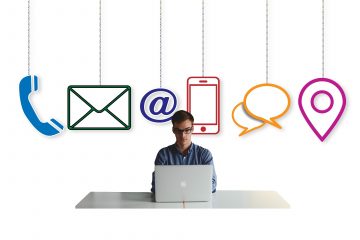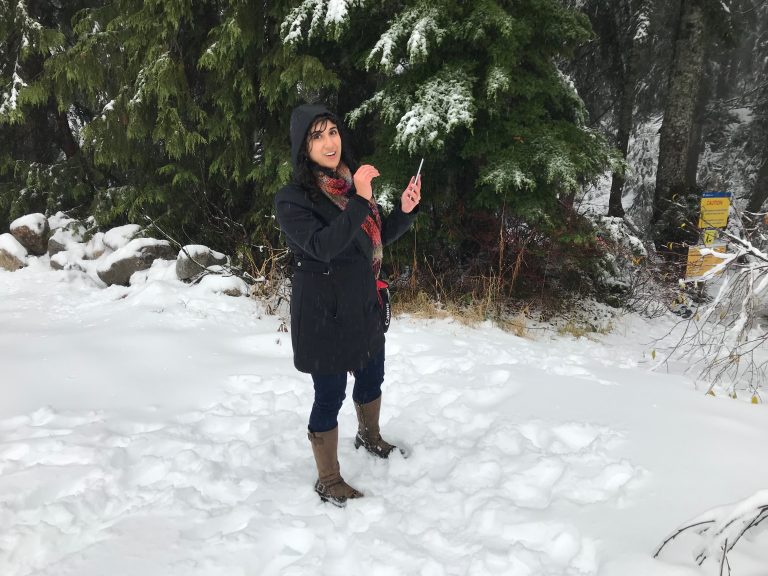
Image Office Desk_By_geralt Used Under CC0 1.0
As a Master of Journalism student, I’m constantly dealing with questions around my private and professional presences on social media. More than being a news source for many people, Facebook, Twitter, Instagram, LinkedIn, and other platforms can be great tools to connect with sources and with the audience. The downside is that we are more exposed and even vulnerable to public scrutiny on those channels.
I am sure this experience is not restricted to journalism. Many other students are facing similar questions when it comes to building a professional presence online. Teachers, scientists, human resources professionals, researchers, freelancers from different areas; all of them might need to use social media as a professional tool at some point. So, what should we all consider before deciding how to incorporate those channels to our work?
It’s Important to Establish Boundaries
Only in the last term, I had to use my personal accounts multiple times to find and contact sources. For example, I recently worked on a project that involved talking to activists and politicians. To make sure I wasn’t revealing anything that could compromise their answers, I dedicated some time to review the public information on my Facebook profile. But is this the best strategy?
Many people prefer — and recommend — to establish a clear line between what is professional and personal by having two separate accounts in platforms such as Facebook and Instagram. “It’s like you have two brands,” said Tamara Baluja, a honorary research associate at UBC’s School of Journalism. She is on leave from her work as CBC Vancouver’s social media editor and is studying the teaching of social media journalism in Canada.
Journalists are expected to be objective about their work, but it doesn’t mean that they have to keep a professional persona when interacting with friends and family. “When I’m having a frank conversation with my friend, whether it’s on Facebook Messenger or in person, I have opinions about the world around me and having two separate accounts lets me express my opinions.”
One downside of this strategy is that people might mix up accounts. All the news of people who have gotten in trouble for accidentally posting personal content to corporate or professional pages are a good reminder of why we need to be extra careful. Embarrassing episodes with Chrysler, Vodafone and even the American Red Cross are just some examples.
Caring about your mental health is another good reason for establishing clear boundaries. People who use social media for work might be more susceptible to possible negative consequences of those networks. They are usually connected for longer periods and more exposed to negative content, including hate speech.
“When I was working at CBC, it was very important for me to say this is work and this is my personal life,” Baluja told me. “I think this was very important for my own mental sanity.”

Tamara Baluja on assignment for CBC Vancouver. Image copyright to Belle Puri.
But, does creating separate accounts mean that we can post whatever we want on our personal profiles? The short answer should be no. An important reflection is that “what is posted online is never private,” as the educator Kerry Gallagher wrote to the website ConnectSafely. She believes that having separate personal and professional accounts don’t secure that boundaries won’t be crossed. “Often, people from one category are also part of another. Real life is messy. Creating clean social media categories will also eventually get messy,” she said.
When Should We Make a Decision?
The decision of separating personal and professional accounts usually come when people deal with situations that make them feel uncomfortable. But Baluja believes we shouldn’t wait until then. “I would say you should have that conversation about whether it’s a choice that you want to make as soon as you walk into journalism school,” she said.
When people ask her if they should have two accounts, she explains that there is no right answer but advises that what they post reflects how the audience perceives them. “Know what you’re putting out on your professional account. Don’t say anything on your professional account that you wouldn’t say live on TV or radio, or that you wouldn’t print in a newspaper with your byline on it.”
And there is another great reason for reflecting on what you post. “There’s a good chance that there’s even a hiring manager who will look at your Twitter account,” Baluja added.
What Do You Think?
- Are those issues related to the use of social media discussed within your field?
- Have you started thinking about building a professional profile?
- If you already use social media as a work tool, how do you separate what is professional from what is private?
- Do you believe that separating accounts free us from eventual risks?
- How do you make sure that the boundaries aren’t being crossed?
Let us know what you think in the comments below!
Disclaimer: The views and opinions expressed in this article are those of the author and do not constitute legal or financial advice.
Always do your own research for informed decisions.
Written by: Monique Rodrigues
Edited by: Defne Inceoglu

